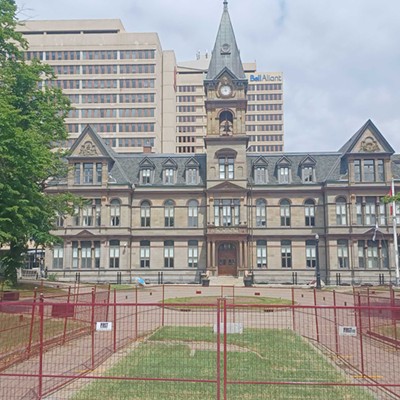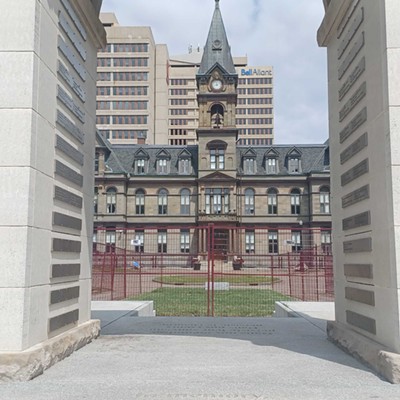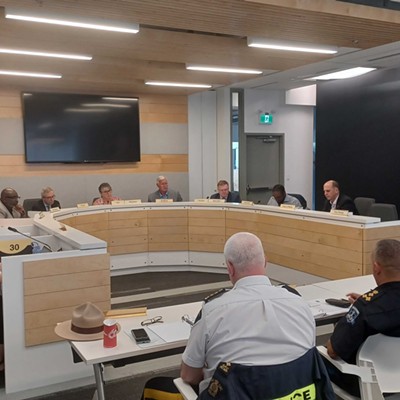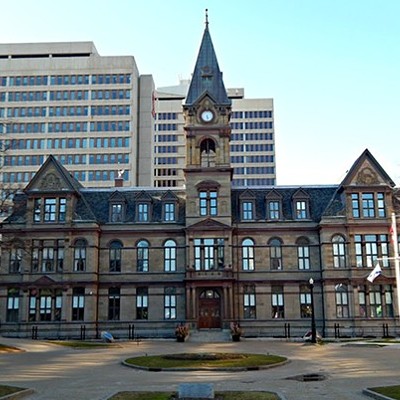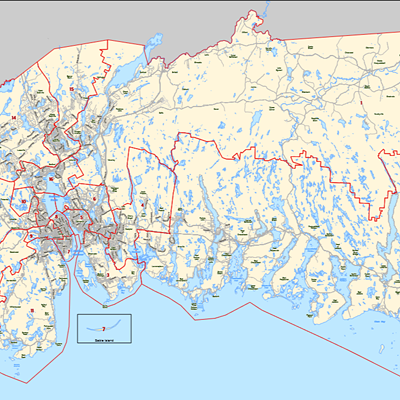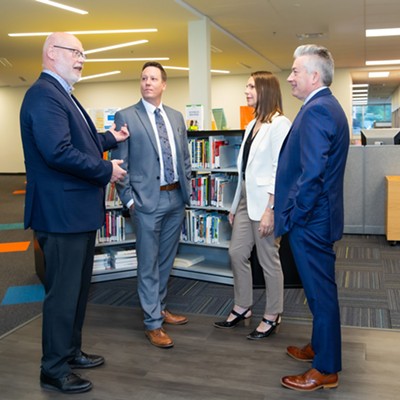The Regional Watersheds Advisory Board met on Thursday Oct. 12, for what was supposed to be a pretty routine meeting. They elected a chair and vice chair. They got a report on last spring’s edition of Bedford West’s water quality monitoring, although the samples weren’t taken in the spring because of the fires and consultant scheduling constraints.
Despite the timing glitch, things were pretty normal except for some elevated aluminum, which could be caused by how the samples were being taken. The city is still waiting for results from the sample taken next to Highway 102, which should come back soon. The fall samples will be taken next week. One of the committee members gave advice on how to better take samples to avoid the aluminum, and city staff have promised to pass on this information to the contractors doing the work.
After all that, things got a little less routine, as a board member took issue with the way meeting minutes are written. Committee member Céo Gaudet, a massive policy nerd who used to work on minutes for the Privy Council Office, said that minutes are supposed to be a public document that capture the detail of the meeting. More than a bland summary of events, minutes should contain details.
For example, last meeting’s minutes should not read “Emma Wattie, Manager, Environment and Elizabeth Montgomery, Water Resources Specialist provided an update on Halifax Regional Municipality’s (HRM) response to the July 2023 rainstorm event, speaking to efforts by HRM to prepare for similar weather events in the future and responded to questions of clarification from the Board.” They should instead say what the committee members were specifically asking about, and what staff specifically said to clarify. Otherwise these minutes are a useless document. The clerk in the meeting responded that the city makes these minutes useless because they have policy directing them to do so “if that makes sense.”
“No, that makes no sense to me,” said Gaudet, a connoisseur of meeting minutes. “What a minute is, is a skillful summary of the discussion capturing the main concerns of whoever it is—in this case the board—the flavour of the discussion, what was discussed and what conclusions were reached, if any. You gave us nothing. If this is the current practice, city wide, that is awful. You should not be doing that…these minutes are useless.”
Time will tell how that’s captured in the minutes for this meeting.
Gaudet then pushed back against city planner Emily Montgomery’s report itself, saying that it was subject to a very subtle version of regulatory capture because it was written in developer’s language instead of in plain English which naturally restricts Montgomery’s ability to tell the truth in her report. Developer’s language, argued Gaudet, naturally underplays the impact of their development.
“I’m not suggesting you change the language in an existing document. Though it’s unfortunate that language went ahead if it’s going to council, because it doesn’t give them an accurate picture of the impacts of development. Which happens mostly after the development,” said Gaudet. “The way the impacts are characterized is very weak, very sort of hands off.” He pointed out that developers often write things that things like their development may cause “changes in appearances” which may “affect functionality.” But that is a very bad way to say a development might cause green slime that would prevent people from swimming in their local lake. Which obscures the truth from councillors, preventing our councillors from being good stewards of the public trust.
Staff have promised to take these comments into consideration.
The committee then got a presentation about the regional plan review, and how it fits into the planning process. One would assume that a board whose terms of reference explicitly say this board should have been included in the planning process of the regional plan review because they are “subject matter experts, with respect to watershed management,” would have been included. But they were not. Connoisseur of fine meeting minutes Gaudet asked staff what the point of the Watersheds Advisory Board is, and city planners responded that they could give feedback on the regional plan review like any other member of the public. But WAB members are not any other member of the public. They are subject matter experts, who have been asked by the city to volunteer their expertise and time to contribute to meetings that fundamentally, structurally, do not matter to the city’s planning processes.
Essentially what the city has done is that they have amassed the city’s leading experts on watershed management, and gotten them to commit their time to regular meetings, only to exclude them from the planning processes where their expertise would be invaluable, and to summarize their discussions in a way that hides all their knowledge behind meeting minutes with zero useable information.
What a catastrophic misuse of municipal resources, and a flagrant disrespect to some of the city’s best and brightest people. “Look at the brainpower on this committee, and you’re wasting it,” said Gaudet.
He pointed out that the committee tried to propose a blue-green algae strategy, but that strategy was rejected. If the meeting minutes were better, the committee could talk about it as an agenda item, discuss the risks, potential policy solutions, and figure out where municipal and provincial legislation interact and may cause conflict. Then the meeting minutes could be sent to councillors as a defacto report or briefing note. Because while it’s all well and good to have videos of committee meetings on YouTube, no councillor is going to watch hours of video in lieu of a policy briefing.
Then the committee discussed future developments in the HRM and the impacts they might have on the waterway. The committee wanted to advise the city about the risks of blue-green algae with the developments proposed in the regional plan review, but were told by staff that they had to follow the same process just like any other private citizen, and just kind of hope that city staff recognize they are an expert. Committee member Gaudet asked why bother giving this presentation if the city didn’t want to hear from the board, to which a city staffer replied that the city does want to hear from the board, but the province instructed the city to ignore this board’s advice in pursuit of development. That’s why the board members have to contact staff as private citizens.
It is unlikely the city’s minutes from this meeting will skillfully summarize the province sidestepping environmental accountability, but we shall see.




